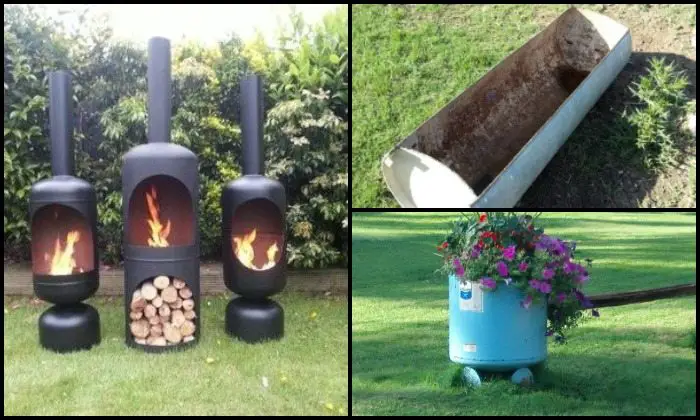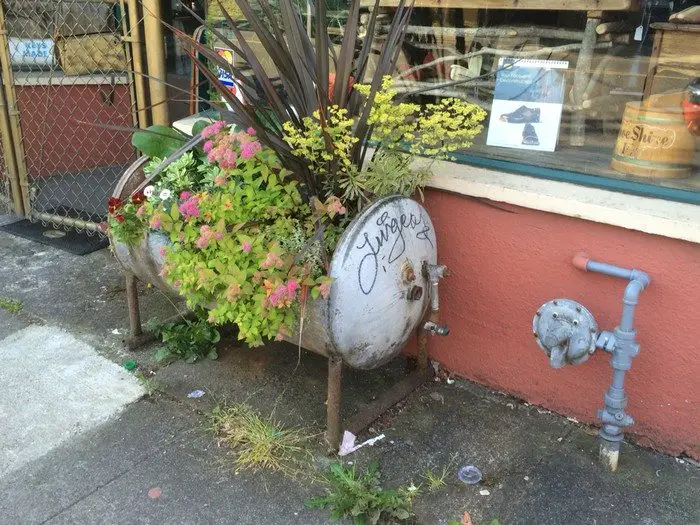
Appliances don’t last forever. When they finally give out, we’re often left wondering how to dispose of them. But then why get rid of them at all?
Got an old, busted water heater? Ever wondered what to do with an old water heater? There’s still life left in them if you try one of these awesome repurposing and water heater recycling ideas!
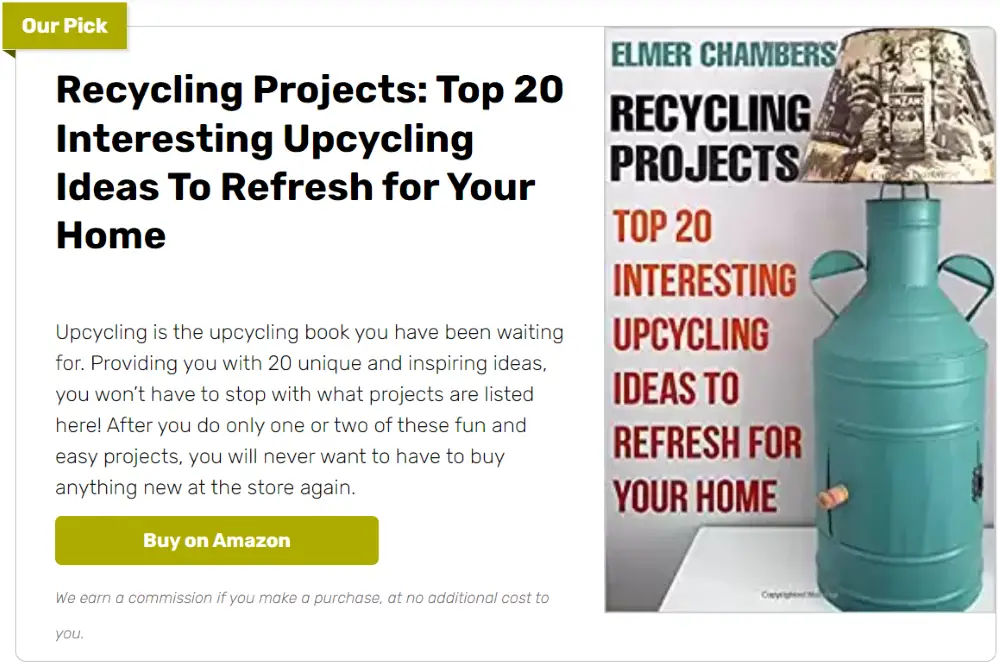
There are several repurposing ideas for them that you can employ in your backyard. Need an outdoor heater? What could be more fitting than an old water heater? You can also upcycle it into a grill to cook delicious food when your family dines al fresco.
They can also be turned into an awesome display at home! Grow more plants with it or make an outdoor accent like a simple snowman for Christmas!
If you’re used to metalworking, you can recycle your old water heater together with other scrap metal to build an awesome life-size robot or a vintage gas pump. If you have kids at home, they will surely be impressed with this idea!
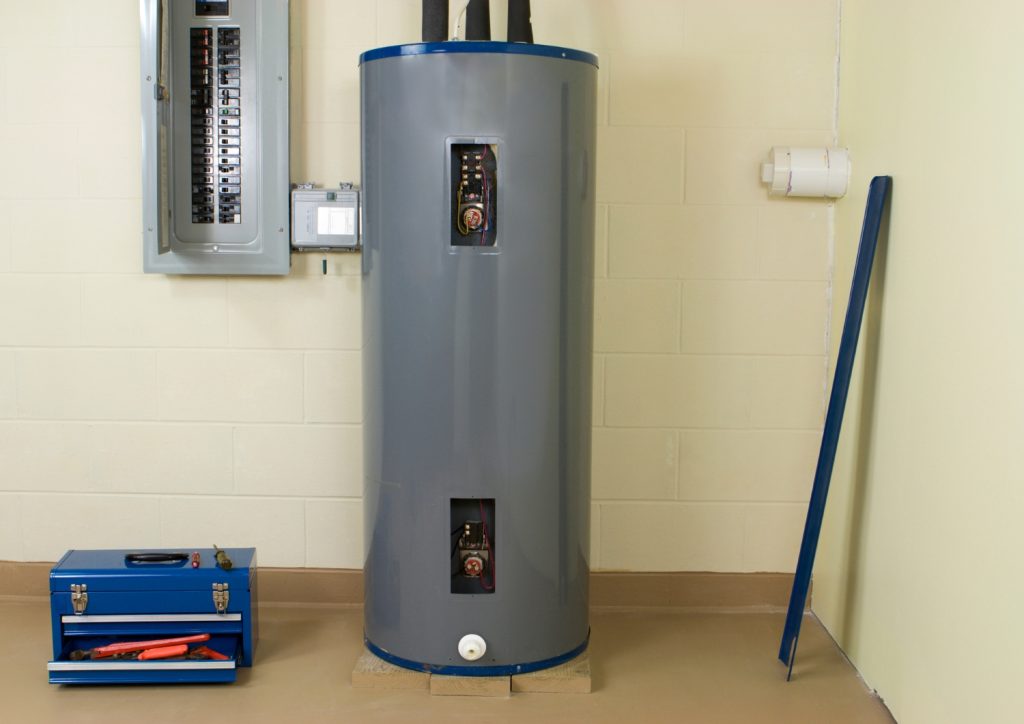
Have a look at the examples we’ve gathered for you below and be inspired to repurpose your old water heater into something awesome!
These are all the water heater recycling ideas that people with an old and broken water heater have done so far… Do you have any water heater recycling ideas to add? :)
Contents
Advantages of Water Heater Recycling
Repurposing or recycling old water heaters can be a creative and environmentally friendly way to give new life to these bulky appliances. Here are six advantages of implementing brilliant water heater recycling ideas:
- Resource Conservation
- It help conserve valuable resources such as metal, glass, and insulation materials. By repurposing these components, you reduce the need for new raw materials and minimize the environmental impact associated with their extraction and processing.
- Reduced Waste:
- Rather than sending old water heaters to landfills where they contribute to the growing problem of waste accumulation, it allow you to divert these materials from disposal sites. This helps reduce the burden on landfill capacity and mitigates environmental pollution.
- Energy Savings:
- Many components of water heaters, including metal parts and insulation materials, require significant energy to manufacture. With it, you save energy that would otherwise be expended in the production of new materials, contributing to overall energy conservation efforts.
- Cost Savings:
- It can result in cost savings for both individuals and businesses. Instead of purchasing new materials for construction projects or home improvements, you can often find affordable or even free recycled materials from repurposed water heaters, reducing expenses and promoting sustainable practices.
- Innovative Design Opportunities:
- It can inspire creative design solutions and innovative projects. From DIY furniture and home pieces to art installations and garden features, the unique shape and components of water heaters offer endless possibilities for creative expression and functional design.
- Community Engagement:
- It can foster community engagement and collaboration. Organizing local recycling workshops where individuals can discover sustainable practices and participate in hands-on projects encourages environmental stewardship and strengthens community ties.
By embracing these brilliant water heater recycling ideas you not only contribute to environmental conservation but also unlock opportunities for cost savings, creativity, and community involvement.
Click on any image to start the lightbox display. Use your Esc key to close the lightbox. ?
Water Heater Recycling Ideas: How Amazing Are They?
Fire Pit / Wood Heater
Cut the cylindrical tank portion of the water heater and remove any insulation. Place it horizontally and use it as a fire pit in your backyard or patio.
Safety Precautions: Ensure the tank is thoroughly cleaned of any residues. Wear appropriate protective gear, such as gloves and eye protection, during cutting and handling to prevent injury.
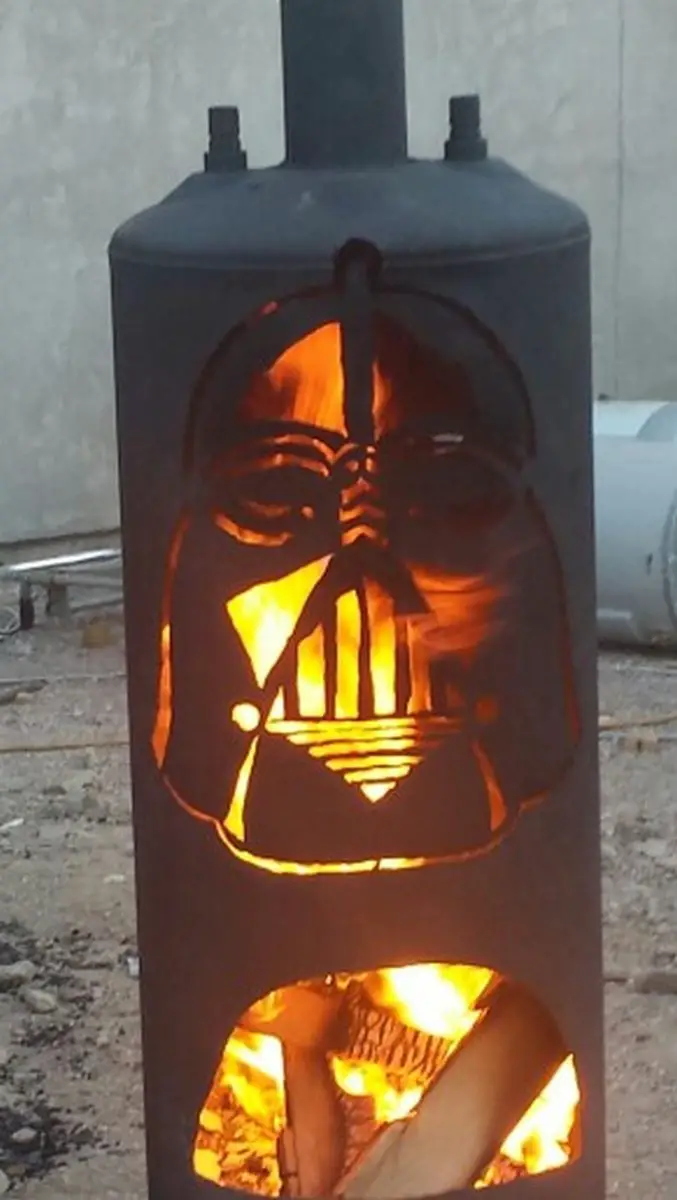
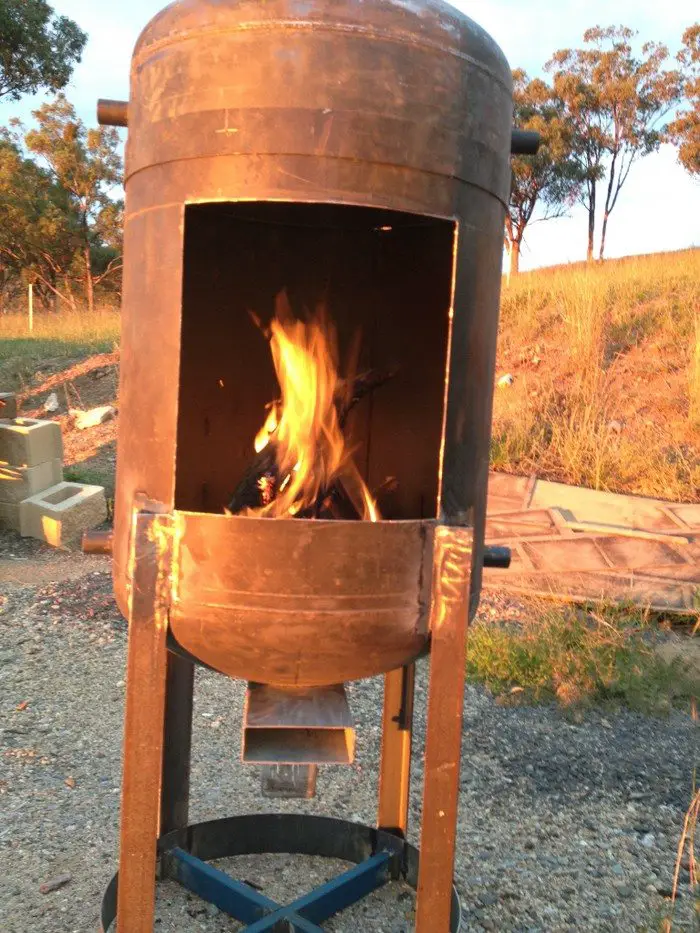
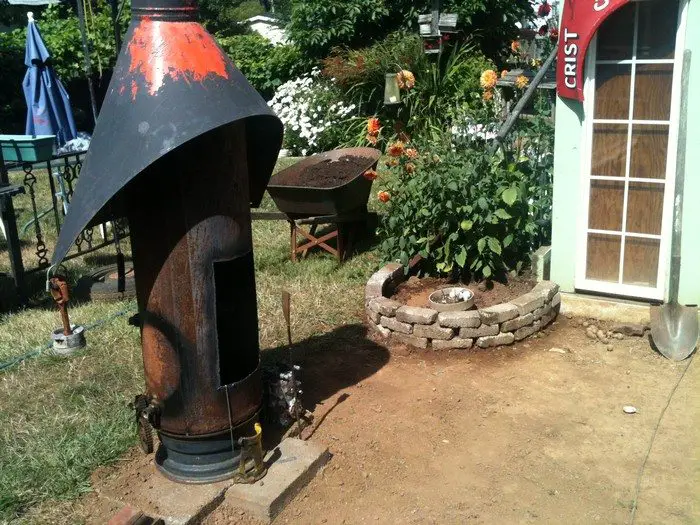
Vintage Gas Pump
The aesthetic appeal of vintage gas pumps adds a nostalgic charm to the heating or cooking experience, making it a popular choice for those who appreciate retro style.
Additionally, repurposing old items like gas pumps into new and objects aligns with sustainability practices, giving new life to old materials rather than letting them go to waste.
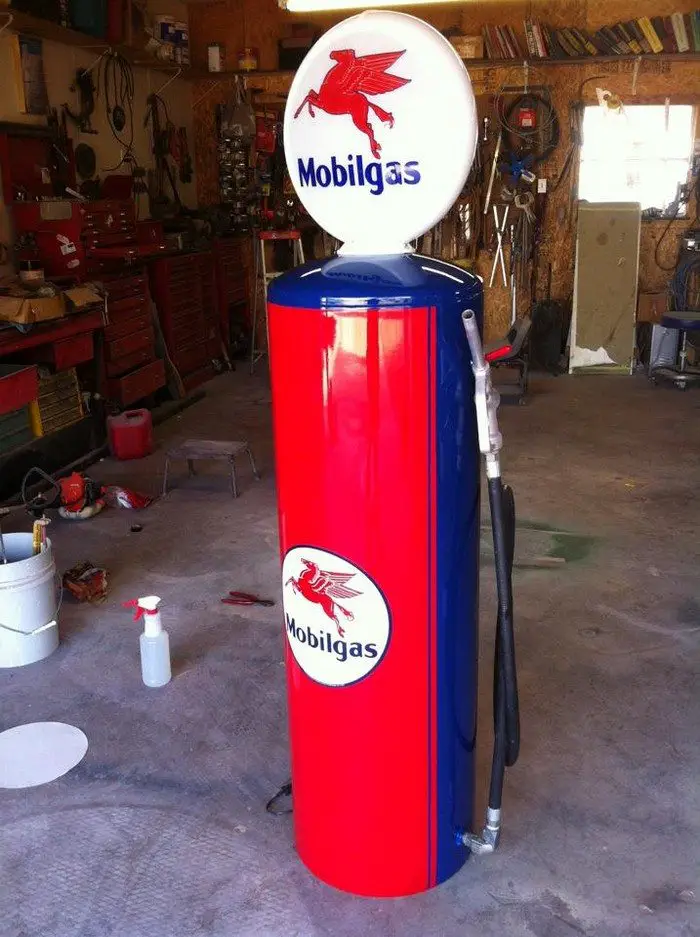
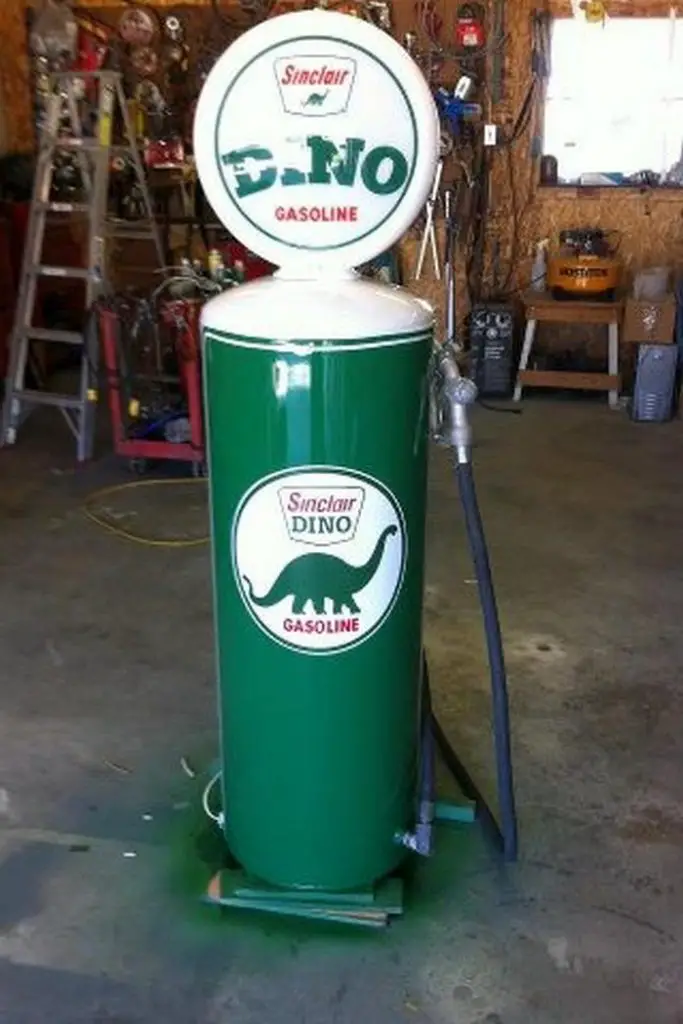
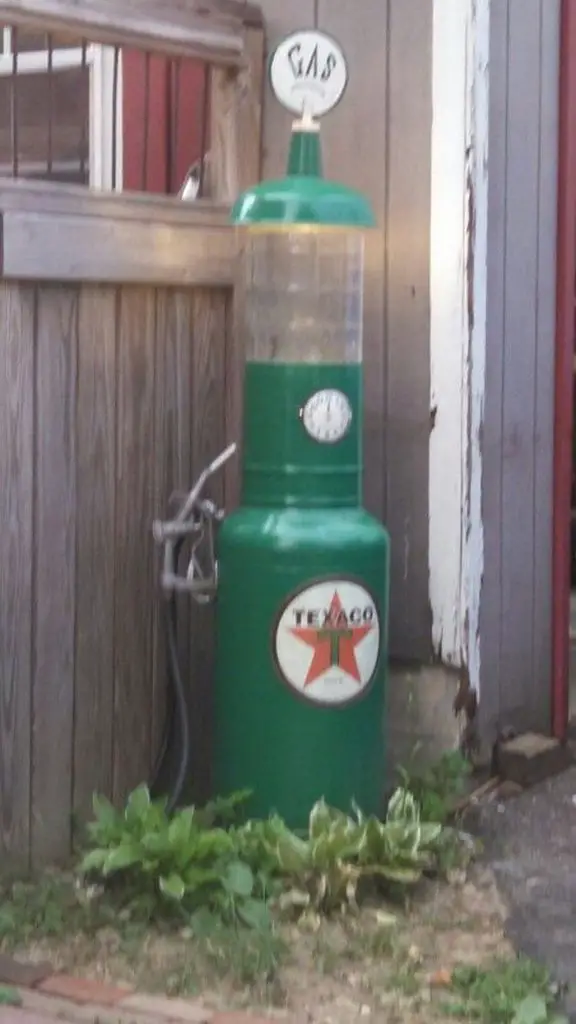
Stove or Grill
Repurpose the water heater into a versatile outdoor stove or grill by affixing a cooking surface to the top and incorporating a chimney for proper ventilation. These inventive water heater recycling ideas are guaranteed to impress and be highly practical for outdoor cooking.
Safety Precautions: Check for any remaining gas or flammable residues before starting any modifications. Ensure proper ventilation to prevent the risk of carbon monoxide poisoning.
How to Transform an Old Water Heater into a Wood Stove
If you’ve got a knack for DIY projects and some welding skills, transforming an old water heater into a functional wood stove can be a rewarding endeavor. Here’s a step-by-step guide to get you started:
- Set Up the Base
- Begin by positioning the water heater horizontally. Secure it firmly on a set of sturdy legs to ensure stability. This forms the basic structure for your wood stove.
- Build the Firebox
- Next, create a firebox on the upper half of the tank. This involves constructing a compartment where wood logs will be placed. Attach a hinged cover at the top of the box for easy access, which will help in adding wood and cleaning ash.
- Install the Flue
- On the opposite side of the firebox, cut a vent hole and attach a pipe vertically. This pipe will act as the flue, allowing smoke to escape and ensuring proper ventilation.
- Design the Air Intake System
- To regulate airflow, cut a horizontal hole through the top of the tank and insert a steel pipe. Drill several small holes along the pipe’s length to allow air to feed into the combustion chamber.
- Attach an adjustable lid or cover at the end of this pipe to easily manage the air intake and control the combustion process.
Compliance Check
Important Tip: Before firing up your new wood stove, ensure that it meets local building codes and safety standards. This is crucial to prevent any potential hazards and to make sure everything is up to legal standards.
By following these steps, you can give your old water heater a new lease on life as a practical and efficient wood stove. Always prioritize safety and legality in such DIY projects.
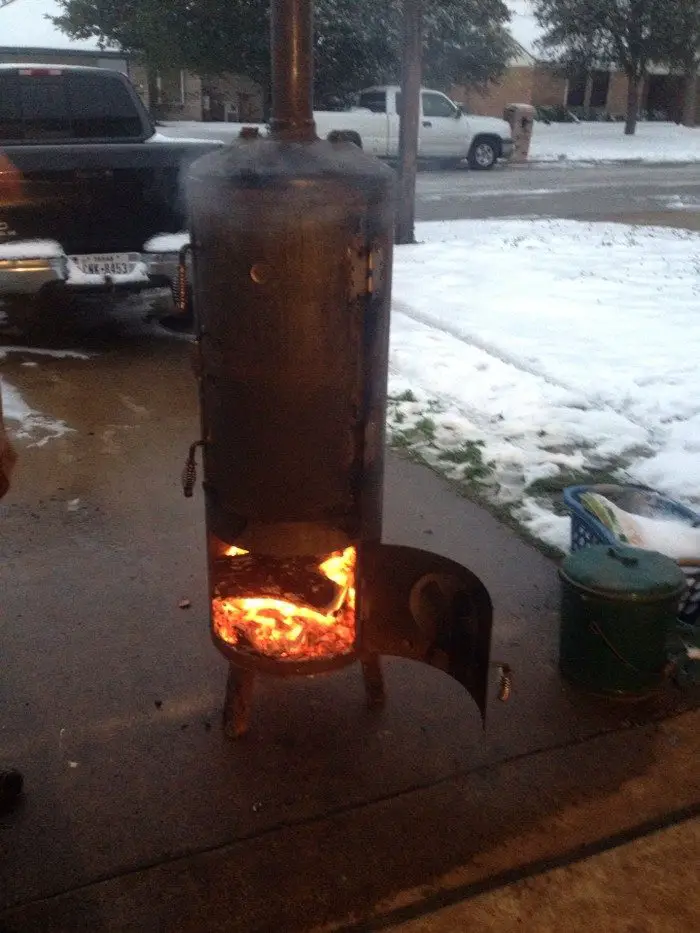
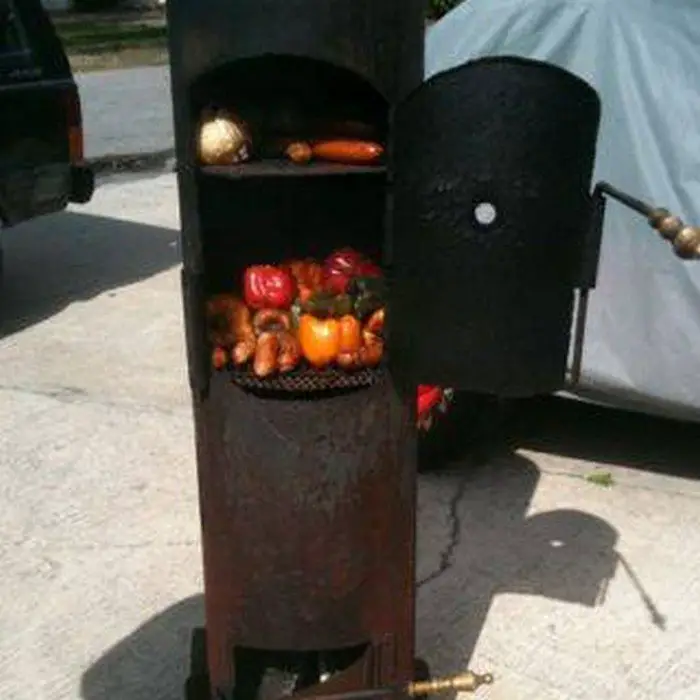
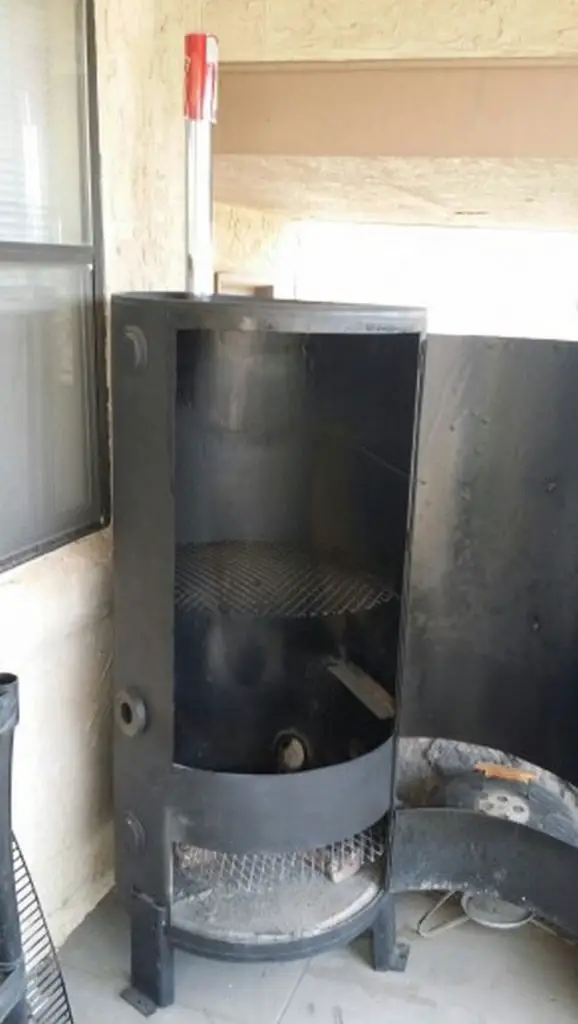
Planter
Cut the water heater horizontally, leaving the bottom portion intact to make a sturdy planter. Improve it as desired and watch it grow plants or as a beautiful element in your garden.
Safety Precautions: Clean the tank thoroughly to remove any chemicals or contaminants that could harm plants. Avoid using water heaters that previously stored hazardous materials
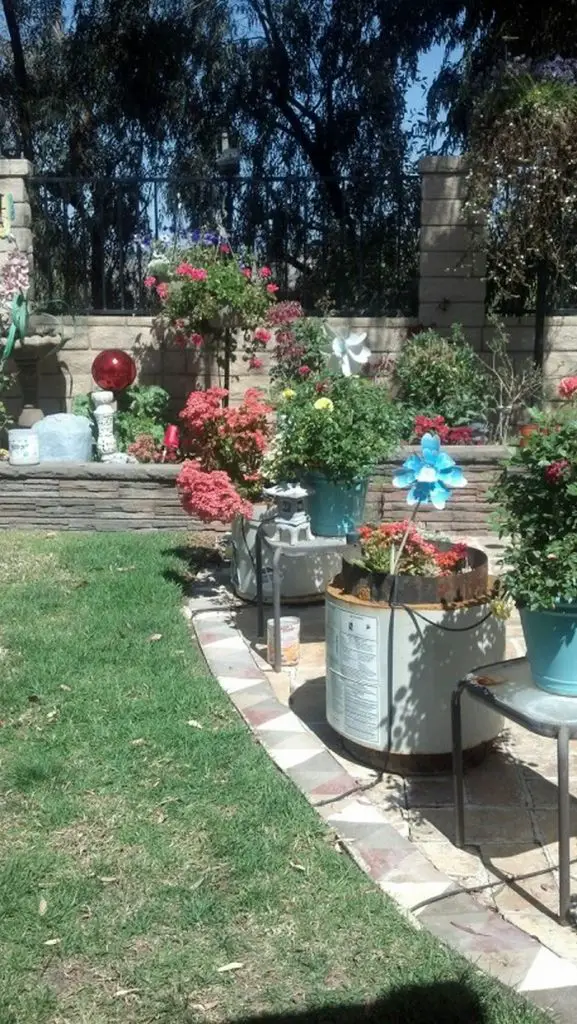
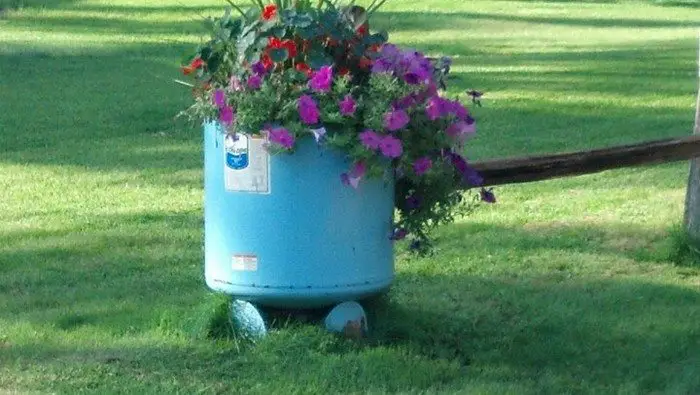

Life Size Character Sculpture
Make the cylindrical tank portion of the water heater as a base material for building metal sculptures. Cut and weld the metal to form unique art pieces for indoor or outdoor display.
Safety Precautions: Practice proper welding safety protocols, including wearing protective gear and working in a well-ventilated area to avoid exposure to fumes. Will your kids enjoy these water heater recycling ideas?
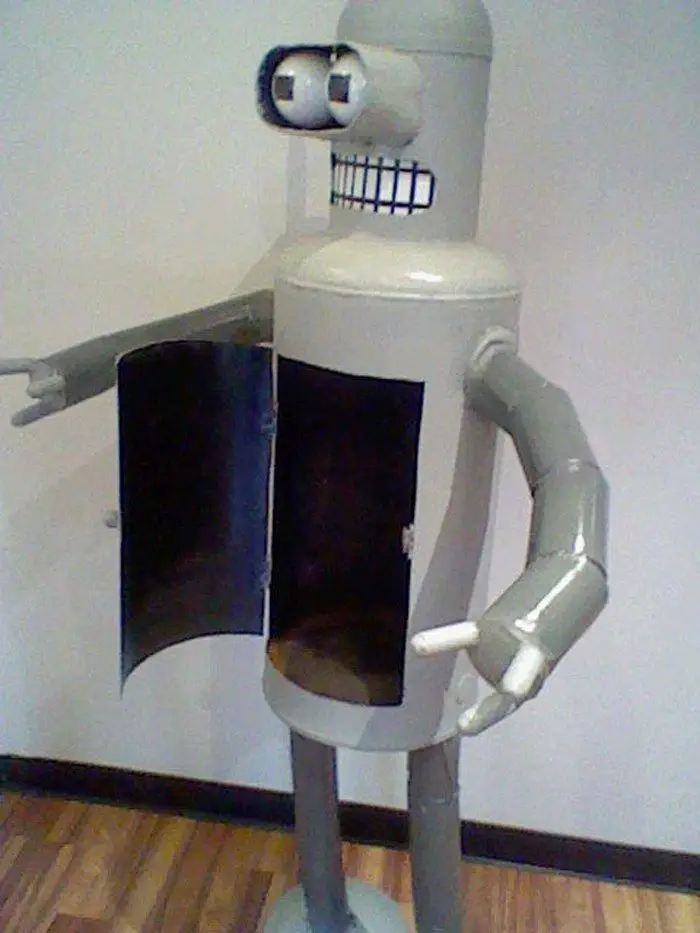
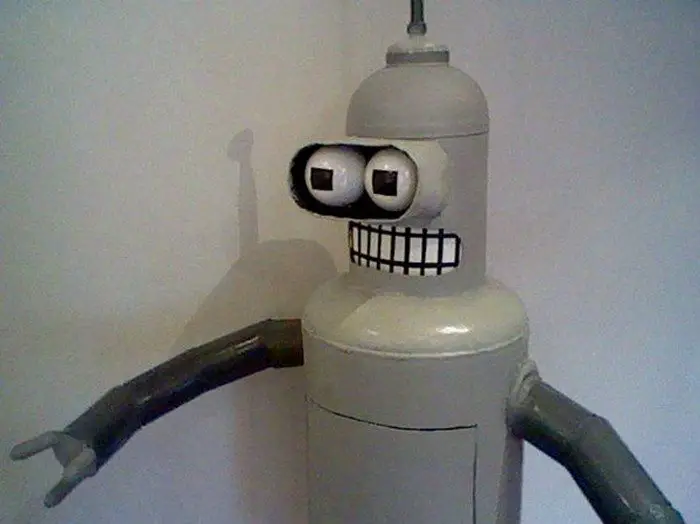
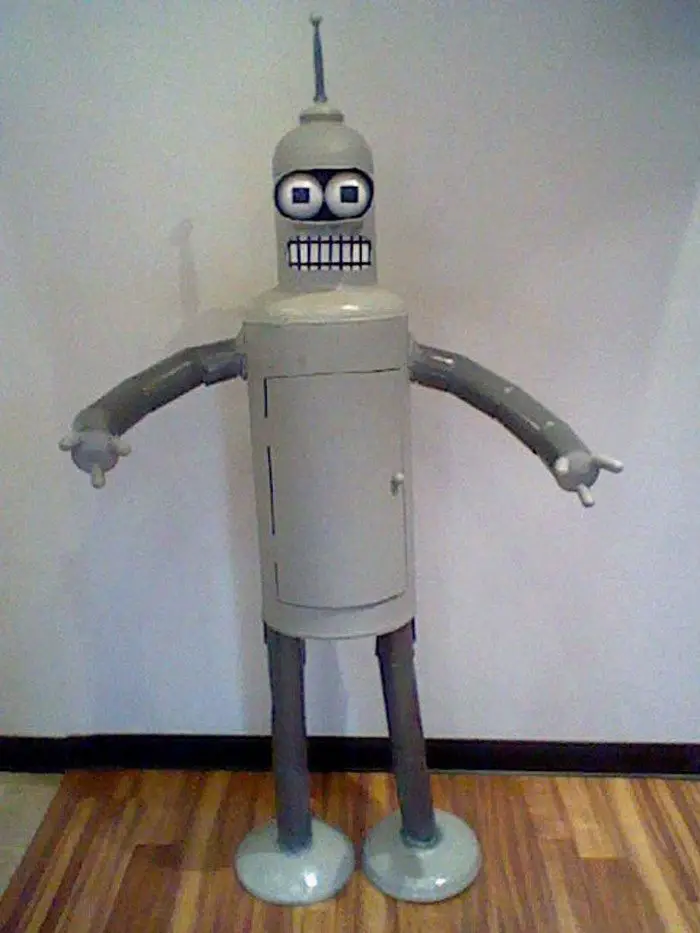
Transforming an Old Water Heater into a Garden Heater
Curious about giving your weathered water heater a new lease on life? You can turn it into a functional and eco-friendly garden heater with some creativity and a few tools. Here’s how:
- Position for Purpose
- First, find a suitable spot in your garden and place the old water heater upright. This sets the stage for your garden heater project.
- Create an Access Point
- Carefully cut a square or rectangular opening near the bottom. This serves as an access point for your fuel source, whether wood, charcoal, or another material.
- Install a Smoke Outlet
- At the top of the heater, attach a flue. This is crucial for venting smoke and gases safely out of the structure, ensuring efficient air circulation.
- Secure A Cover
- For safety and weather protection, equip the opening with a removable cover, aiding in retaining heat while shielding the internal components.
These water heater recycling ideas not only breathe new life into your old appliance but also provides a cozy atmosphere for your garden gatherings. Be sure to follow all safety guidelines when handling tools and materials.
Other Repurposing Ideas
Salvage various components of the water heater, such as the heating element, thermostat, and metal casing, for metalworking projects like custom tools, sculptures, or furniture.
Safety Precautions: Handle sharp or hot metal components with care to avoid cuts or burns. Dispose of any remaining hazardous materials responsibly.
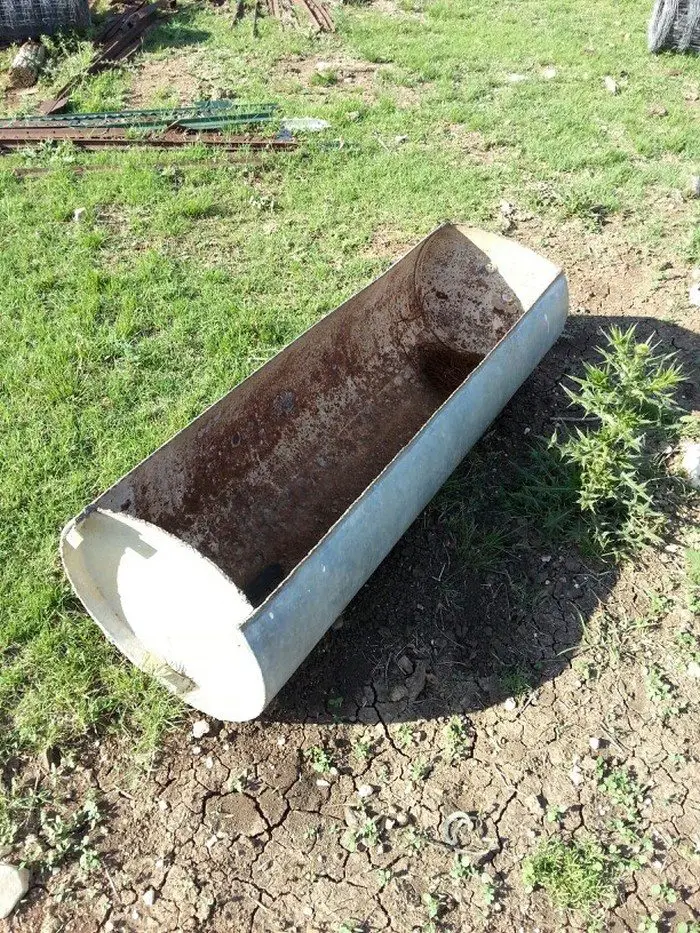
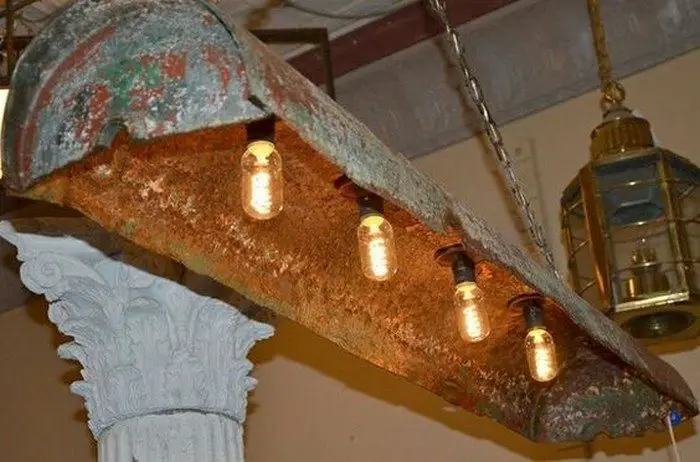
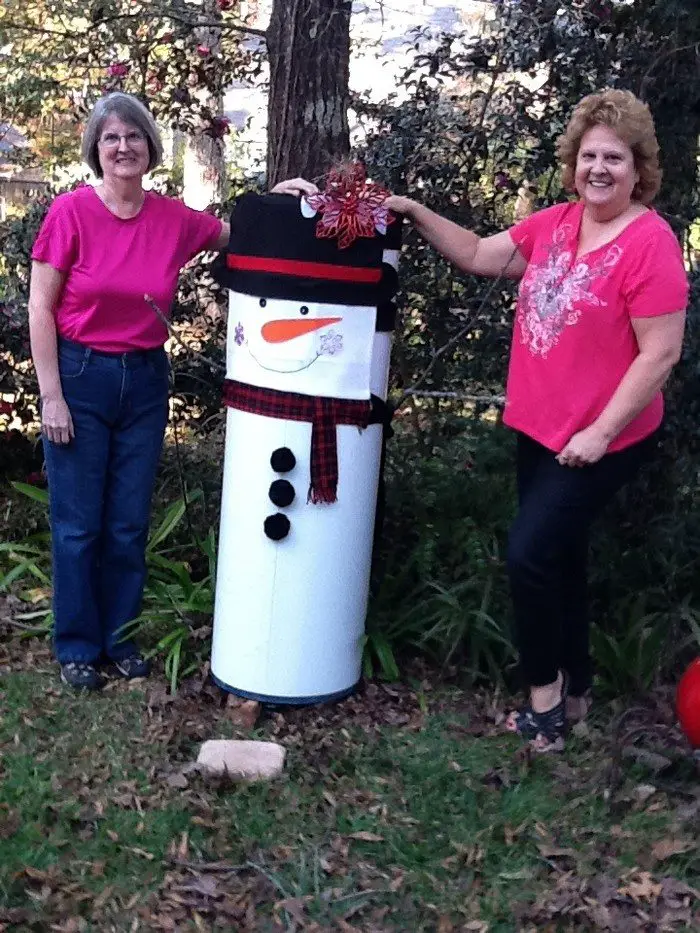
Smart Ways to Reuse and Preserve
Regardless of the chosen water heater recycling ideas, always prioritize safety. Wear appropriate protective equipment, follow safety guidelines for handling tools and materials, and consult professionals if unsure about any aspect of the process.
Additionally, consider the environmental impact of your project and dispose of any unusable parts responsibly. With careful planning and creativity, old water heaters can find new life in a variety of exciting and practical applications.
Maintaining a recycled water heater involves similar principles to maintaining a new one, with some additional considerations due to its recycled nature. Here are some steps to maintain a recycled water heater:
Regular Inspection:
- Check for leaks, rust, or corrosion on the tank and fittings.
- Inspect the connections and valves for any signs of wear or damage.
- Ensure that the temperature and pressure relief valve is functioning properly.
Flushing and Cleaning:
- Flush the tank annually to remove sediment buildup, which can affect performance and efficiency.
- Clean the exterior of the water heater to remove dust and debris that can accumulate over time.
Temperature Adjustment:
- Set the temperature to a safe and efficient level to prevent scalding and reduce energy consumption.
Insulation:
- Insulate the hot water pipes and tank to improve energy efficiency and reduce heat loss, especially if the recycled water heater is older and less efficient.
Anode Rod Inspection and Replacement:
- Check the condition of the sacrificial anode rod regularly to prevent corrosion inside the tank.
- Replace the anode rod if it shows signs of significant wear or deterioration.
Professional Servicing:
- Consider hiring a professional plumber or technician for periodic maintenance and inspections, especially if you’re unsure about the condition of the recycled water heater.
Be cautious of signs of wear or issues with the used water heater. Replace it if needed to maintain a safe and efficient hot water supply.
Prioritize Safety Always!
Expanding on safety precautions for water heater disposal involves considering various aspects to ensure both personal safety and environmental protection. Here’s a more comprehensive list:
- Thorough Cleaning of the Tank:
- Before disposal or recycling, it’s critical to thoroughly clean the water heater tank of any residues, sediment, or buildup. This prevents potential hazards during handling and recycling processes.
- Wear Appropriate Personal Protective Equipment (PPE):
- When handling water heaters, especially during cutting or dismantling, wearing the right PPE is essential.
- This includes heavy-duty gloves to protect hands from sharp edges, eye protection such as safety goggles or a face shield to prevent eye injuries from flying debris, and possibly respiratory protection if there’s a risk of inhaling dust or fumes.
- Disconnect Utilities Safely:
- Before starting any dismantling or disposal procedures, ensure that the water heater is disconnected from all utilities, including electricity, gas, and water. This minimizes the risk of electrical shocks or gas leaks during handling.
- Secure Proper Ventilation:
- Work in a well-ventilated area to prevent the buildup of potentially harmful gases or fumes. If working indoors with your water heater recycling ideas, open windows and doors to allow for adequate airflow. If working outdoors, choose a location away from enclosed spaces.
- Employ Safe Cutting Tools and Techniques:
- When working with your water heater recycling ideas like cutting or disassembling the water heater, use appropriate tools and techniques to minimize the risk of accidents or injuries. Employ tools like reciprocating saws, angle grinders, or pipe cutters, and follow manufacturer guidelines for safe operation.
- Handle Hazardous Materials Properly:
- If the water heater contains insulation materials like fibreglass or asbestos, handle them with extreme caution. Asbestos, in particular, poses serious health risks if disturbed or released into the air. Follow local regulations for the safe handling and disposal of hazardous materials.
- Dispose of Waste Responsibly:
- After dismantling the water heater, separate recyclable materials like metals from non-recyclable components. Dispose of non-recyclable materials according to local regulations, and take recyclable parts to designated recycling centers or scrap yards.
- Consider Professional Assistance:
- If unsure about safely handling or disposing of the water heater, consider hiring professionals experienced in appliance disposal or recycling. They have the expertise and equipment to handle the task safely and efficiently.
By following these safety precautions, individuals can minimize the risk of injuries and environmental hazards associated with water heater disposal and water heater recycling ideas.
The Wrap Up
Repurposing old water heaters into furniture or for artistic projects promotes environmental sustainability through creative recycling methods. This helps reduce waste, conserve resources, and inspire innovative reuse of appliances.
The potential for repurposing water heaters is vast, from using the tank as a planter to creating unique light fixtures. The possibilities are endless, offering opportunities for innovation and resourcefulness in our communities.
Let’s embrace these water heater recycling ideas as catalysts for change and progress, working collaboratively towards a more sustainable future—one water heater at a time.
Together, we can harness the power of creativity and ingenuity to make a world where waste is minimized, resources are conserved, and every discarded item finds a new purpose.
Frequently Asked Questions
1. Can you recycle your old water heater?
Yes, you can recycle your old water heater. Many recycling centres and scrap metal yards accept water heaters for recycling. Contact your local recycling facilities for guidance on how to properly dispose of your old water heater.
When considering water heater recycling ideas, it’s essential to reach out to your local recycling facilities to inquire about their specific guidelines and procedures. Different locations may have varying requirements or restrictions regarding the disposal of large appliances like water heaters.
To ensure that you properly dispose of your old water heater, contact your local recycling facilities or waste management authorities for guidance. They can provide you with information on drop-off locations, pickup services, and any special instructions for preparing the water heater for recycling.
2. What are some creative water heater recycling ideas?
Creative water heater recycling ideas include using the tank for fire pits, compost bins, or planters. Salvage parts like copper tubing or brass valves for different projects. The possibilities for recycling water heaters are vast, promoting creativity, waste reduction, and sustainability. Explore these innovative concepts to give your old water heater a new purpose.
3. Is it safe to repurpose a water heater tank for DIY projects?
Reusing a water heater tank for DIY projects can be safe if cleaned properly and checked for contaminants. With precautions and thorough cleaning, repurposing the tank for projects like fire pits or planters can be safe, fulfilling, and eco-friendly.
4. Can you recycle water heater parts for money?
Recycle water heater parts like copper tubing or heating elements for money at scrap metal yards. The value varies depending on scrap metal prices. By doing this, you help the environment and make some extra income. Gather old parts, recycle responsibly, and get cash!
5. Are there any safety considerations with water heater recycling ideas?
When working on recycling water heater ideas, prioritize safety by draining the tank fully to prevent spills. Wear protective gear when handling metal parts and be wary of sharp edges. Take precautions to avoid accidents, like using tools for sharp objects and covering protruding parts.
6. Inspiration for water heater recycling ideas?
Find water heater recycling ideas online through DIY websites, social media platforms, or community forums. Visit local recycling centres or salvage yards for materials. Explore scrap metal dealers for discarded items, like old water heaters, to repurpose. Let your creativity flow by envisioning new possibilities.

